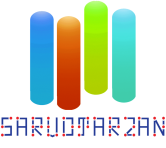SEO
7 Powerful On-Page SEO Tips For Small Teams In 2023
In today’s digital landscape, search engine optimization (SEO) plays a crucial role in driving organic traffic to websites. For small teams looking to boost their online presence and attract more visitors, mastering on-page SEO techniques is essential. By optimizing various elements on their website, small teams can effectively improve their search engine rankings and reach a wider audience. In this article, we will explore seven powerful on-page SEO tips specifically tailored for small teams in 2023.
Table of Contents
- Introduction
- Tip 1: Conduct Keyword Research
- Tip 2: Optimize Title Tags and Meta Descriptions
- Tip 3: Create High-Quality and Engaging Content
- Tip 4: Optimize URL Structure and Internal Links
- Tip 5: Improve Website Loading Speed
- Tip 6: Utilize Header Tags (H1, H2, H3, H4)
- Tip 7: Optimize Images and Use Alt Tags
- Conclusion
- FAQs
1. Introduction
In the competitive online landscape, on-page SEO practices can significantly impact a website’s visibility and organic rankings on search engine result pages (SERPs). Small teams with limited resources can implement these seven powerful on-page SEO tips to enhance their website’s performance and attract more targeted traffic.
2. Tip 1: Conduct Keyword Research
Before optimizing your website, it’s crucial to conduct comprehensive keyword research. Identify relevant keywords and key phrases that your target audience is likely to use when searching for information related to your website’s content. Tools like Google Keyword Planner, SEMrush, or Moz Keyword Explorer can assist in finding valuable keywords with high search volume and low competition.
3. Tip 2: Optimize Title Tags and Meta Descriptions
Title tags and meta descriptions are essential on-page SEO elements. Craft compelling, keyword-rich title tags that accurately represent the content of each webpage. Limit the title tag length to around 55-60 characters to ensure it displays fully on SERPs. Additionally, write unique meta descriptions that entice users to click through to your website. Keep meta descriptions under 160 characters and include relevant keywords to improve their visibility on SERPs.
4. Tip 3: Create High-Quality and Engaging Content
Content remains king in the world of SEO. Focus on creating high-quality, informative, and engaging content that adds value to your target audience. Incorporate your target keywords naturally throughout the content, ensuring a seamless reading experience. Utilize headings and subheadings (H2, H3, H4) to structure your content and make it more scannable for users and search engines.
5. Tip 4: Optimize URL Structure and Internal Links
Ensure your website’s URL structure is concise, descriptive, and user-friendly. Use relevant keywords in the URL, separating words with hyphens (-) for better readability. Additionally, implement internal linking strategies to improve the flow of link equity throughout your website. Internal links help search engines discover and index your content more efficiently while providing users with additional relevant information.
6. Tip 5: Improve Website Loading Speed
Website loading speed is a crucial factor in user experience and SEO. Optimize your website’s loading speed by compressing images, minifying CSS and JavaScript files, and utilizing browser caching. A faster website not only improves user satisfaction but also boosts search engine rankings.
7. Tip 6: Utilize Header Tags (H1, H2, H3, H4)
Header tags, such as H1, H2, H3, and H4, help structure your content and signal its importance to search engines. Use a single H1 tag per page to indicate the main heading, followed by relevant H2, H3, and H4 tags for subheadings. Incorporate target keywords in your header tags to reinforce their relevance to search engines.
8. Tip 7: Optimize Images and Use Alt Tags
Images play a vital role in enhancing user experience and capturing attention. Optimize images by compressing their file size without compromising quality. Additionally, use descriptive alt tags that include relevant keywords to help search engines understand the content of the image. Alt tags also contribute to accessibility by providing text alternatives for visually impaired users.
Conclusion
Implementing effective on-page SEO strategies can make a significant difference for small teams aiming to improve their online visibility and attract organic traffic. By conducting thorough keyword research, optimizing title tags and meta descriptions, creating high-quality content, optimizing URL structure and internal links, improving website loading speed, utilizing header tags, and optimizing images with alt tags, small teams can boost their website’s performance in 2023.
FAQs
Q1: How long does it take to see results from on-page SEO efforts? It varies depending on various factors such as the competitiveness of the industry, the quality of your optimization efforts, and the frequency of search engine crawls. Generally, it takes a few weeks to several months to see noticeable improvements in search engine rankings and organic traffic.
Q2: Is on-page SEO enough to rank well on search engines? While on-page SEO is essential, it’s only one aspect of a comprehensive SEO strategy. Off-page factors like backlinks, social signals, and user engagement also influence search engine rankings. Combining on-page and off-page optimization techniques is crucial for achieving long-term success in SEO.
Q3: Should I optimize every single page on my website? While it’s beneficial to optimize key landing pages and high-priority content, optimizing every single page may not be necessary or practical for small teams. Focus on optimizing pages that are most important for your business goals and target audience.
Q4: Can I rely solely on automated SEO tools for on-page optimization? Automated SEO tools can provide valuable insights and suggestions, but they should not replace human analysis and decision-making. It’s crucial to interpret the tool’s recommendations in the context of your specific website and make informed optimization choices.
Q5: How often should I update my website’s content for SEO purposes? Regularly updating your website’s content is beneficial for both users and search engines. Aim to refresh and expand your content periodically to provide the most relevant and up-to-date information to your audience. However, the frequency of updates may depend on your industry and the nature of your content.

